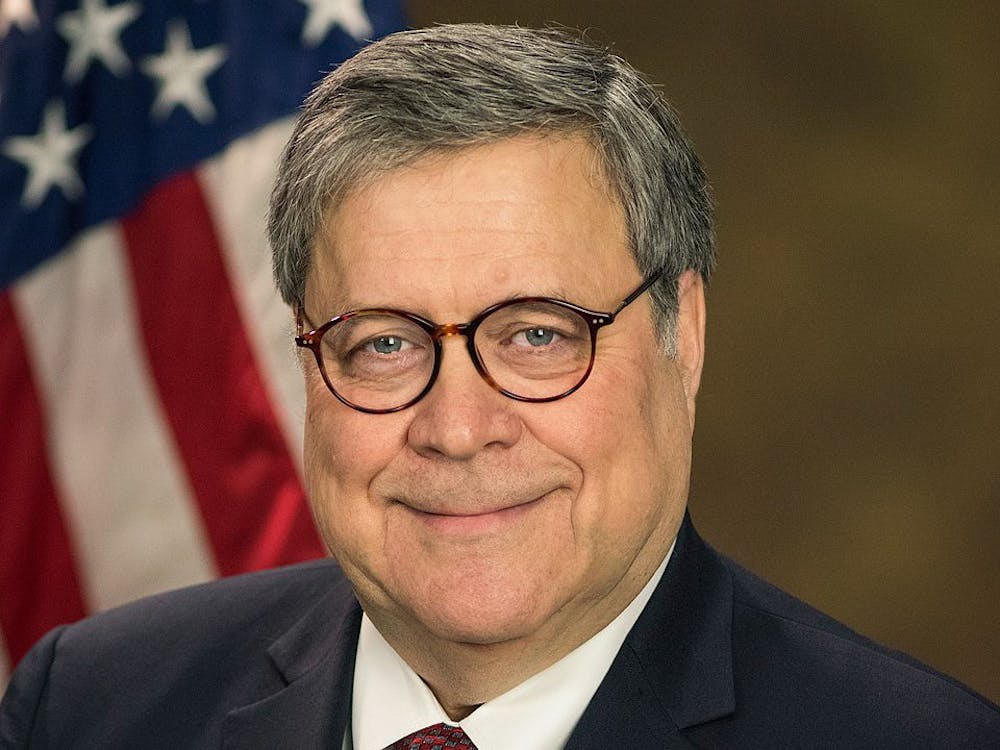The federal death penalty is coming back soon, but the impact may be less than expected, according to Duke academics familiar with the policy.
The Department of Justice announced July 25 that Attorney General William Barr plans to bring back the federal death penalty for five individuals on death row in January 2020, but Duke legal scholars are skeptical of how much of an impact this policy will have.
Barr has directed the Federal Bureau of Prisons to schedule the executions of five death-row inmates who were convicted of murdering children, reviving federal capital punishment after nearly 20 years. The last execution under the federal death penalty took place in 2003.
Brandon Garrett, L. Neil Williams Jr. professor of law at Duke and the fourth most-cited professor in criminal law and procedure in the U.S., told The Chronicle that federal prosecutors might seek death sentences more often as a result of the new policy. However, similar approaches have not historically yielded a surge in federal death sentences.
“Certainly at least a few federal executions may occur—for the first time in over a decade—but even those handful of executions will likely be litigated since the attorney general has announced a new execution protocol that has not been fully disclosed or vetted in the courts,” Garrett said.
He pointed out that there are few death penalty cases at the federal level, given that most federal cases involve immigration, drug or gun charges, which are not capital offenses. Federal cases also tend to have strong lawyers on all sides, which could push juries away from death sentences.
Garrett also noted that bringing federal capital charges in states that have abolished the death penalty may result in some concerns about federalism and the reach of the federal government. Beyond the constitutional tensions, federal prosecutors face challenges in obtaining death sentences in states where the death penalty is unpopular and victims may not want to seek the death penalty.
Another Duke Law figure agreed that the new policy would have little effect on most death penalty cases.
Arvind Krishnamurthy, a doctoral student in the political science department, noted that the death penalty is largely a state issue and that only three individuals have been executed by the federal government since 1963.
Krishnamurthy has previously worked on research with Frank Baumgartner—Richard J. Richardson distinguished professor at the University of North Carolina at Chapel Hill—regarding the death penalty, and their work has been cited by Supreme Court Justice Stephen Breyer.
He mentioned that although the death penalty is conditionally constitutional under the Supreme Court’s 1976 decision in Gregg v. Georgia, states are often reluctant to implement the death penalty due to political blowback, financial costs and the difficulties of acquiring the drugs needed for lethal injection.
Barr’s endorsement of the death penalty could push some Republican-led state governments to continue the practice, but public support for the punishment is dwindling, Krishnamurthy added. He noted that the framing of the death penalty in public debate has changed significantly in recent years.
“The way the death penalty has been framed over time has changed,” Krishnamurthy said, “because now a lot more of the death penalty is about its morality and its error rate.”
As DNA-focused innocence projects raise concerns about the error rate of the criminal justice system and the prosecution of death sentence cases, he added, public opinion may shift further away from the death penalty. Because the Supreme Court is sensitive to public opinion, he predicted that the court will more likely take on new cases and eventually rule against the constitutionality of the death penalty.
“When the government is taking a life, that’s literally the most severe action the government can possibly take on another human being, and so we need that to have 100% accuracy,” he said.
Get The Chronicle straight to your inbox
Signup for our weekly newsletter. Cancel at any time.

